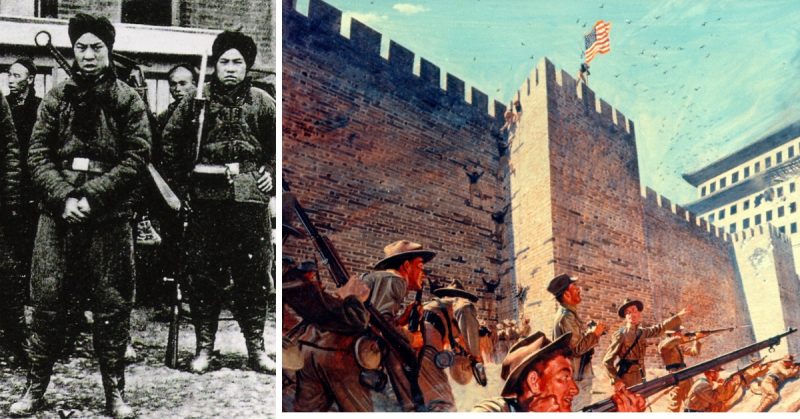Anti-western sentiment in China began years previously with the onset of the Opium Wars against Britain. Both wars (1839-1842) and (1856-1860) ended in a vain attempt by the Chinese to prohibit the importation and the sale of opium within its borders.
And, once defeated, China was forced to sign the Treaty of Nanjing in 1842 giving Britain the island of Hong Kong and which also opened the ports of Shanghai and Canton (Guangzhou) to foreign trade.
Carving Up the Chinese Melon
Some years later the Chinese were defeated by the Japanese during the Sino-Japanese War. Europeans realized China’s weaknesses and wanting to reap the same rewards as Britain began “carving up the Chinese territory”, just as they had done to the continent of Africa.
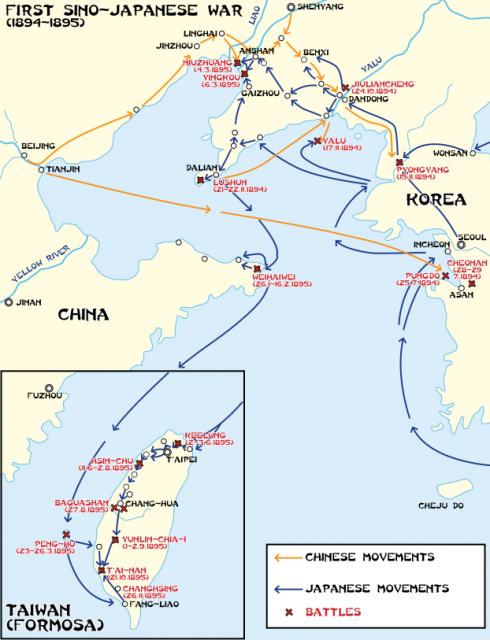
Several European powers seized portions of Chinese territories seeking riches and commercial enterprise such as France and Germany which received Kiaochow, Tsingtao and Shantung, and Russia with claims to Port Arthur. The United States focused primarily on the Pacific Islands, such as the Philippines and Guam, in an effort to balance power in the Pacific against the Japanese Empire.
Additional “spheres of influence” were also granted to these foreign powers, such as railway leases and commercial rights. Another cultural upset was that Roman Catholic and Protestants missionaries encouraged Chinese conversions from Buddhism to Christianity.
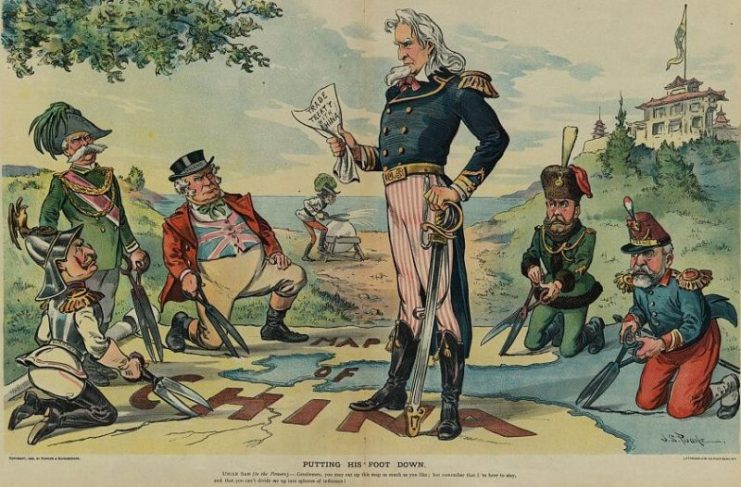
The Boxers
In response, an ancient secret society known as “I-ho Chuan” or “Righteous and Harmonious Fists” nicknamed “the Boxers”, resented western influence in regards to business and religious practices deeming them a threat to Chinese traditions.
This religious organization once rebelled against imperialism and felt that expelling foreigners would begin a new age for China. The Dowager Empress Tz’u-hsi underhandedly issued a decree pardoning the organization against any criminal wrong.
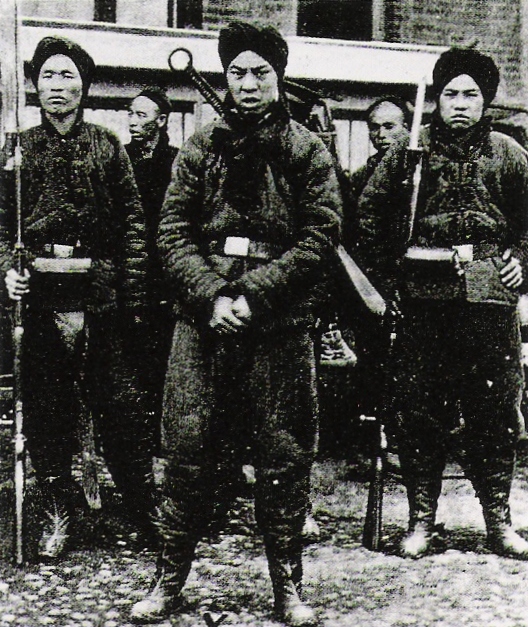
The Boxers killed Europeans, Americans and any Chinese that sympathized with the foreigners or practiced their ways and also destroyed foreign owned businesses. The Chinese army was unsupportive of the Empress Dowager’s attempt to side with the rebels. Instead, they opted to quell the violence and protect foreigners.
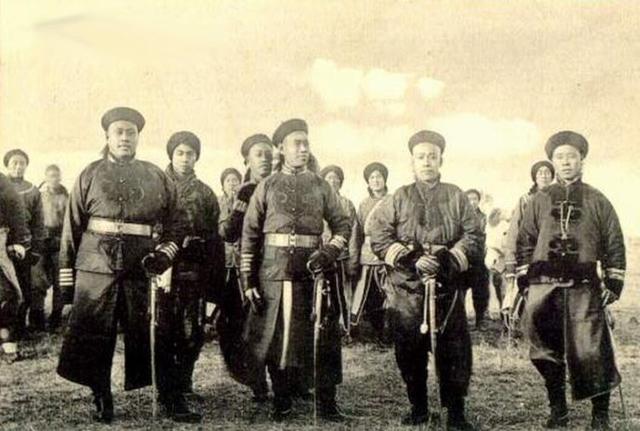
Since the rebellion was more prevalent in Peking (Beijing) and the countryside where the rebels would attack and kill Chinese converts to Christianity, the Western nations quickly dispatched an expeditionary force to Peking to fight the rebels and protect Western Nationals.
The Dowager Empress ordered troops to block their advance and in the meantime, the Boxers ravaged Peking–burning Western churches, houses and killing those that got in their way. In the interim, the German minister to China was assassinated.
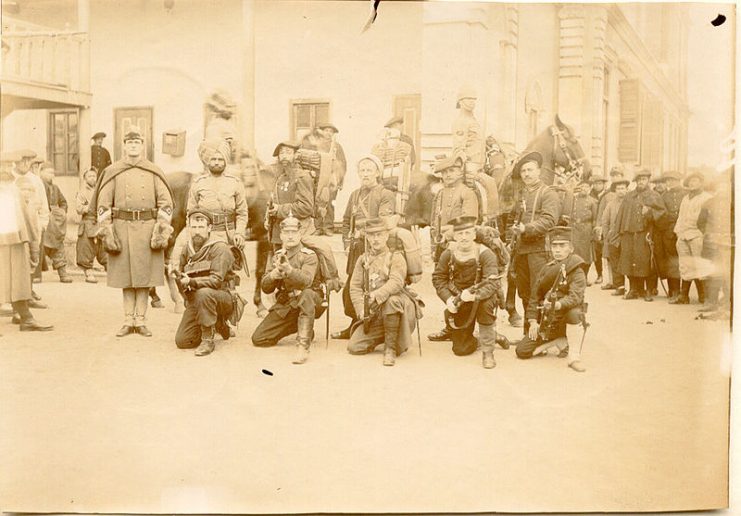
The aggression continued as foreign troops seized Chinese coastal forts to gain access to Peking, which outraged the Dowager Empress. She then ordered, “death to all foreigners in China”. Peking was captured by foreign forces that looted and rerouted the Boxers. The Empress and her court fled North.
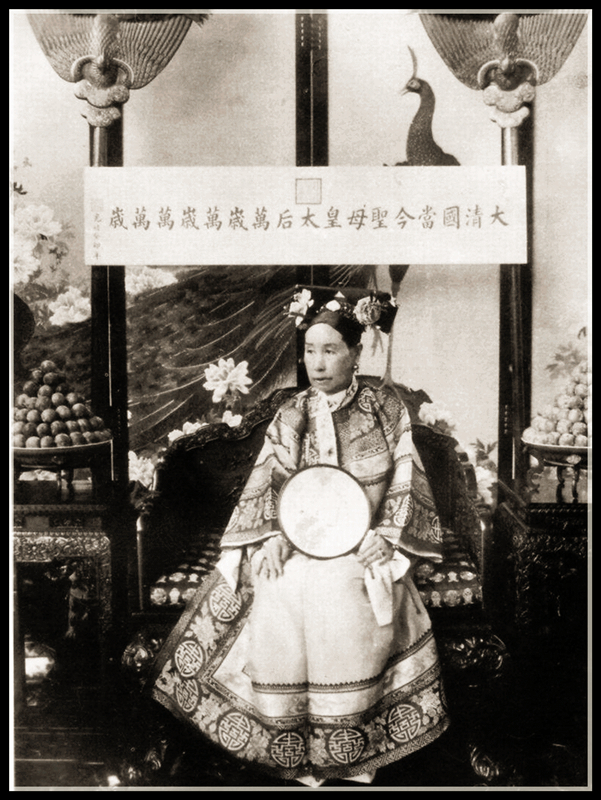
The Peace of Peking Agreement
A year later all parties involved came to an agreement ending the Boxer Rebellion. The agreement was named the “Peace of Peking”. The terms were pro-West and Japanese and anti-China. The terms brought about much change, such as:
- The Boxer Protocol of 1901 abolished Boxer society
- Heavy fines against the Chinese government to reimburse European and American losses suffered during the rebellion
- Existing commercial treaties were revised in favor of Western powers
- Foreign coastal defenses were disassembled
- A constant military force was kept in the capital, putting the imperial government under arrest
- Government officials that had a role in the rebellion were prosecuted
- All arms imports were halted
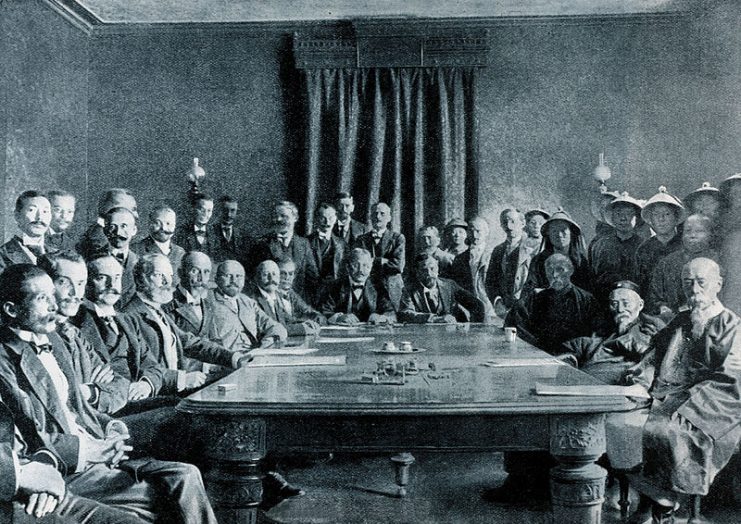
After which, the U.S. Secretary of State John Hay encouraged a Chinese “Open-Door Policy” to remain in effect as a policy of equality of trade with China in an effort to respect China’s territorial integrity and sovereignty. At the end of the fighting, several hundred people had died on all sides.
The End of the Ch’ing Dynasty
The Chinese may not have won this particular rebellious effort, but it set the stage for a nationalist revolt led by Dr. Sun Yat-sen that would be the end of the Ch’ing Dynasty ending a 2,000-year reign. The military was reorganized under Yuan Shih-K’ai, which adopted Western and Japanese military organization, tactics and discipline.
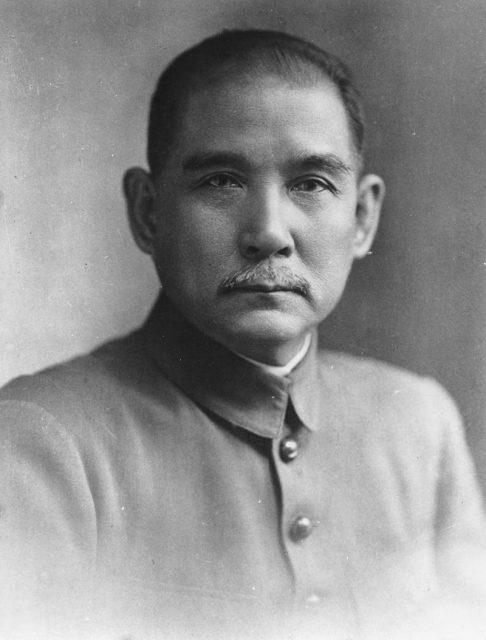
Read another story from us: The Dramatic British Opium Wars Which Changed The Course Of History
The Chinese citizens that could afford to send their children to European and Japanese schools to study science, economics and Western thought, i.e. Marxism which eventually gave way to a more communist China. A wary eye is still kept on too much Western influence and control.
